Related Research Articles
Technical and further education or simply TAFE is the common name in English-speaking countries in Oceania for vocational education, as a subset of tertiary education. TAFE institutions provide a wide range of predominantly vocational courses.
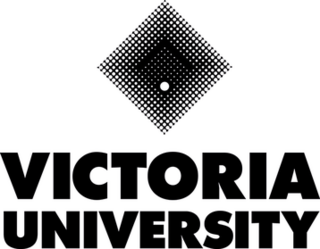
Victoria University is a public research university based in Melbourne, Victoria, Australia. It is a dual-sector university, providing courses in both higher education and technical and further education (TAFE).

Education in Australia encompasses the sectors of early childhood education (preschool) and primary education, followed by secondary education, and finally tertiary education, which includes higher education and vocational education. Regulation and funding of education is primarily the responsibility of the States and territories; however, the Australian Government also plays a funding role.

The Swinburne University of Technology is a public research university in Melbourne, Australia. It is the modern descendant of the Eastern Suburbs Technical College established in 1908 that was renamed Swinburne Technical College in 1913 after its co-founders George and Ethel Swinburne. It has three campuses in metropolitan Melbourne in Hawthorn, where its main campus is located, Wantirna and Croydon as well as a campus in the East Malaysian state of Sarawak. It also offers courses online and through its partnered institutions in Australia and overseas.
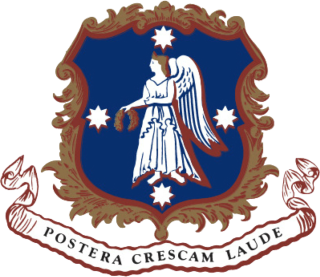
The University of Melbourne is a public research university located in Melbourne, Australia. Founded in 1853, it is Australia's second oldest university and the oldest in Victoria. Its main campus is located in Parkville, an inner suburb north of Melbourne's central business district, with several other campuses located across Victoria.
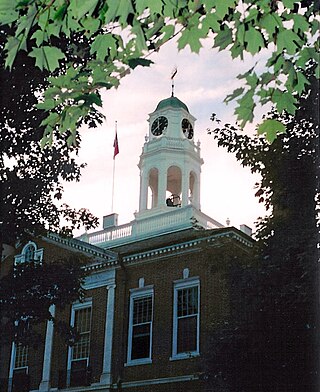
A private school is a school not administered or funded by the government, unlike a public school.

Kaplan, Inc. is an international educational services company that provides educational and training services to colleges, universities, businesses and individuals around the world. Founded in 1938 by Stanley Kaplan, the company offers a variety of test preparation, certifications, and student support services. The company is headquartered in Fort Lauderdale, Florida, and is a wholly owned subsidiary of Graham Holdings Company.

Ormond College is one of the largest residential colleges of the University of Melbourne located in the city of Melbourne, Victoria, Australia. It is home to around 350 undergraduates, 90 graduates and 35 professorial and academic residents.

Alan David Gilbert AO was an Australian historian and academic administrator who was president and vice-chancellor of the University of Manchester between 2004 and 2010.

Private universities and private colleges are higher education institutions not operated, owned, or institutionally funded by governments. However, they often receive tax breaks, public student loans, and government grants. Depending on the country, private universities may be subject to government regulations. Private universities may be contrasted with public universities and national universities which are either operated, owned and or institutionally funded by governments. Additionally, many private universities operate as nonprofit organizations.
Swinburne Student Union (SSU), is the independent student representative body of Swinburne University of Technology in Melbourne, Australia. Membership is opt-in for all Swinburne students. Swinburne Student Union is currently campaigning for a return of student control of student affairs. The Swinburne Student Union is Swinburne’s only independent, student-run; representation, welfare and events service.
The Faculty of Law and Justice of the University of New South Wales is a law school situated in Sydney, Australia. It is widely regarded as one of Australia's top law schools. The 2021 QS World University Rankings rank the UNSW Law Faculty 13th in the world, first for undergraduate law in Australia, 2nd overall in Australia and 3rd in the Asia-Pacific region, and the 2021 Times Higher Education subject rankings also rank it second in Australia, making it the top ranked law school in New South Wales according to both tables, as well as being the top undergraduate Law school in the country.
The Commonwealth Register of Institutions and Courses for Overseas Students (CRICOS) is a register formed under the Education Services for Overseas Students (ESOS) Act 2000. It maintains a list of institutions, and courses, which have been granted permission by states and territories, to educate overseas students. It is a Federal framework under the authority of state and territory jurisdiction, and providers must register through these agents to legally educate and train international students. CRICOS, in conjunction with other federal and state/territory bodies and legislation, provides strict guidelines for institutions, accepts and/or declines registrations, monitors registered institutions’ compliance and ensures financial capability and stability.

Tertiary education in Australia is formal education beyond high school in Australia, consisting of both government and private institutions and divided into two sectors; Higher Education and Vocational Education and Training (VET) provided by government-owned TAFEs & private Registered Training Organisations (RTO). Australian Qualifications Framework (AQF), the Australian national education policy, classifies tertiary qualification into 10 levels: level 1 to 4 vocational certificates ; level 5 & 6 undergraduate diploma and advanced diploma; level 6 associate degree; level 7 bachelor degree, level 8 bachelor honours degree & graduate certificates and graduate diplomas; level 9 for master's degree; and level 10 PhD. Most universities are government owned and mostly self-regulated. For other institutes there are two national regulators for tertiary education for registration, recognition and quality assurance of both the "provider institutes" as well as the "individual courses" provided by the providers. Tertiary Education Quality and Standards Agency (TEQSA) regulates institutes which provide education from level 5 or above. Australian Skills Quality Authority (ASQA) regulates institutes which provide education from level 1 to level 6.

Education in Victoria, Australia is supervised by the Department of Education and Training, which is part of the State Government and whose role is to "provide policy and planning advice for the delivery of education". It acts as advisor to two state ministers, that for Education and for Children and Early Childhood Development.
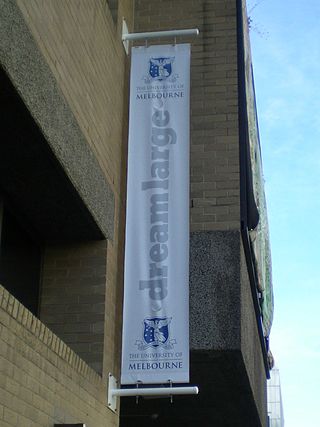
The Melbourne Model is a standardised academic degree structure which was introduced at the University of Melbourne in 2008. The Melbourne Model is designed to align itself "with the best of European and Asian practice and North American traditions" specifically for "[i]nternationalising academic programs and aligning degree structures with the 'Bologna model'". As a result of its implementation the university's 96 undergraduate courses were replaced with six undergraduate degrees and professional programs. These were Arts, Science, Environment, Biomedicine, Music, and Commerce. Agriculture was added later, and Environments controversially replaced by Design. The idea was that career-oriented specialisation would occur at postgraduate level, rather than in the broad undergraduate degree itself. The shifting of Medicine and Law to postgraduate level was new in Australia.
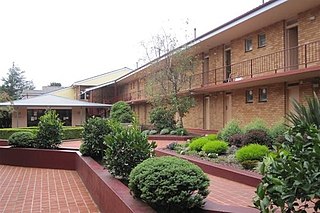
The Blue Mountains International Hotel Management School (BMIHMS) is an Australian hotel management training school affiliated with the private, for-profit Torrens University Australia. The school maintains campuses in Leura, Melbourne, Sydney, and Adelaide of Australia, as well as an overseas campus in Suzhou, China.

Islamic University of Indonesia is a national private university in Yogyakarta, Indonesia. It was established on 27 Rajab 1364 or on 8 July 1945 as Islamic Higher School by political figures of the day including Dr. Mohammad Hatta, Mohammad Natsir, Mohammad Roem, Wahid Hasyim, and Abdul Kahar Muzakir. STI developed into a university called Universitas Islam Indonesia on 14 December 1947. Historically, UII is the first private university in Indonesia established after Indonesian independence and considered by some as the oldest private university in the country, although Jakarta Theological Seminary actually precedes it in 1934.

Jansen Newman Institute is an Australian private college that offers both tertiary education and vocational education and training in counselling, psychotherapy and community services.
Teaching English as a second (TESL) orforeign language (TEFL) and teaching English to speakers of other languages (TESOL) are terms that refer to teaching English to students whose first language is not English. The terms TEFL, TESL, and TESOL distinguish between a class's location and student population, and have become problematic due to their lack of clarity. TEFL refers to English-language programs conducted in countries where English is not the primary language, and may be taught at a language school or by a tutor. For some jobs, the minimum TEFL requirement is a 100-hour course; the 120-hour course is recommended, however, since it may lead to higher-paid teaching positions. TEFL teachers may be native or non-native speakers of English.
References
- ↑ "Melbourne Update Melbourne University Private: re-accreditation move". University of Melbourne. Archived from the original on 7 January 2011. Retrieved 1 April 2019.
- ↑ "Merger spells end of Melbourne Uni Private". The Age. 8 June 2005. Retrieved 1 April 2019.
- ↑ Maslen, Geoff (2005). "Melbourne's private affair ends in red ink". Times Higher Education Supplement (1696): 11.